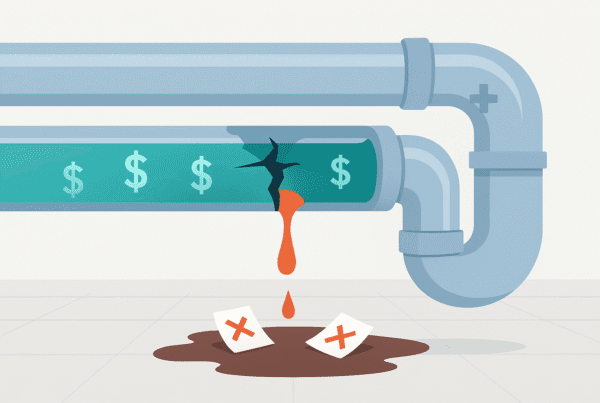Selling your nephrology practice is one of the most significant financial and professional decisions you will ever make. For physician owners in Seattle, the current market presents unique opportunities, but also requires careful navigation. This guide provides insights into the local market, key valuation drivers, and the steps involved in a successful transition, helping you move forward with clarity and confidence.
Curious about what your practice might be worth in today’s market?
Market Overview
The Seattle healthcare landscape is dynamic and sophisticated. It is characterized by consolidation, innovation, and a growing demand for high quality specialty care. For nephrology practices, this environment is particularly relevant. The recurring revenue streams from managing chronic kidney disease and dialysis care are highly attractive to a range of potential buyers.
The Seattle Advantage
Seattle is a hub for major health systems and is on the radar of national-level investors. A well-run practice here is not just a local healthcare provider. It is a valuable asset in a competitive market. Buyers are actively looking for established practices with strong community ties and efficient operations.
Buyer Appetite
Interest is not limited to hospital systems. We see significant activity from large nephrology platforms and private equity groups looking to enter or expand in the Pacific Northwest. These buyers understand the value of your patient relationships and are often willing to pay a premium for a practice that can serve as a strategic base for growth.
Key Considerations
Beyond your financials, buyers in the Seattle market will look closely at the underlying strengths of your nephrology practice. Your referral networks with primary care physicians and hospitals are a major asset. They demonstrate the stability and reach of your practice within the community. Similarly, your affiliations with local dialysis centers, whether through joint ventures or medical directorships, are critical value drivers. Buyers want to see clear, favorable, and transferable agreements. Finally, your payer contracts, especially with Medicare, will be scrutinized. A favorable mix and well-negotiated rates can significantly enhance your practice’s valuation.
Market Activity
The market for medical practices is not static. It is a competitive environment where timing and strategy matter. In the Seattle area, we are seeing a few key trends for nephrology practices.
- Strategic Consolidation: Larger, established nephrology groups are looking to grow their footprint. They seek to acquire smaller practices to gain market share, expand their provider base, and create operational efficiencies. For a seller, this can mean joining a larger, physician-led organization.
- Private Equity Investment: Financial buyers are increasingly interested in nephrology due to its predictable revenue and opportunities for growth. They often seek to partner with physicians, providing capital and business support while doctors maintain clinical control. This can be a path to realizing significant value from your practice.
- Health System Integration: Local hospitals continue to look for ways to build out their specialty care networks. Acquiring a nephrology practice can help them better coordinate care for patients with complex conditions, aligning with value-based care models.
The window of opportunity for optimal valuations shifts with market conditions.
The Sale Process
A successful practice sale follows a structured, confidential process. It begins long before the practice is listed. The first step is preparation, which involves organizing your financial records and getting a clear understanding of your practice’s market value. Next, we would discreetly approach a curated list of qualified buyers without revealing your identity. As offers come in, we help you evaluate them based not just on price but also on structure and fit. The most critical stage is often due diligence, where the buyer verifies every aspect of your practice. This is where many deals encounter challenges, making expert preparation vital. The process concludes with the negotiation of a final agreement and closing the transaction.
Preparing properly for buyer due diligence can prevent unexpected issues.
Valuation
Determining what your nephrology practice is worth is more than a simple formula. Sophisticated buyers look at a key metric called Adjusted EBITDA. This starts with your net income and adds back interest, taxes, depreciation, amortization, and certain one-time or owner-specific expenses. This gives a true picture of the practice’s profitability. That Adjusted EBITDA is then multiplied by a number, the “multiple,” which is based on factors like your practice’s size, growth rate, and reliance on a single physician.
Understanding this calculation is the first step to seeing your practice’s true potential value.
| Financial Item | Example Amount | Explanation |
|---|---|---|
| Reported Net Income | $500,000 | The “bottom line” on your P&L statement. |
| Owner Salary Add-Back | +$150,000 | Adjusting owner’s pay to a fair market rate. |
| One-Time Expenses | +$25,000 | Adding back a non-recurring cost, like a past legal fee. |
| Adjusted EBITDA | $675,000 | The true cash flow a buyer is purchasing. |
A comprehensive valuation is the foundation of a successful practice transition strategy.
Post-Sale Considerations
The work is not over once the sale documents are signed. Planning for what comes next is crucial for a smooth transition for you, your team, and your patients. You need a clear strategy that addresses your personal, professional, and financial goals after the transaction.
Your Role Post-Transaction
Will you retire immediately, or do you plan to continue practicing for a few years? Your employment agreement, compensation, and role must be clearly defined during negotiations. Many buyers want physician owners to stay on to ensure a seamless transition, which gives you leverage to define your future on your terms.
Protecting Your Team
Your staff is a key part of your practice’s success and legacy. A well-structured sale includes provisions to protect your team, ensuring their continued employment and integration into the new organization. This is a critical point of negotiation that protects the culture you built.
Securing Your Financial Future
The structure of your sale has major implications for your after-tax proceeds. Working with an advisor to plan for tax efficiency can make a substantial difference in your final net outcome. This ensures the wealth you have worked hard to build is preserved for your future.
Your specific goals and timeline should drive your practice transition strategy.
Frequently Asked Questions
What makes the Seattle market unique for selling a nephrology practice?
Seattle’s healthcare landscape is dynamic, characterized by consolidation, innovation, and a growing demand for specialty care. The city is a hub for major health systems and attracts national investors, making a well-run nephrology practice a valuable asset in this competitive market.
Who are the typical buyers for nephrology practices in Seattle?
Buyers include large nephrology platforms, private equity groups, hospital systems, and local health systems. These buyers value established practices with strong community ties and efficient operations and may pay a premium for strategic growth opportunities.
What key factors do buyers consider when valuing a nephrology practice in Seattle?
Buyers focus on referral networks with primary care physicians and hospitals, affiliations with dialysis centers, favorable and transferable payer contracts, especially with Medicare, and the practice’s Adjusted EBITDA which reflects true profitability.
What are the main trends affecting the sale of nephrology practices in Seattle?
Key trends include strategic consolidation by larger groups, private equity investment looking for predictable revenue and growth opportunities, and health system integration to enhance specialty care networks aligned with value-based care models.
What steps are involved in the process of selling a nephrology practice?
The process involves preparation such as organizing financials and valuing the practice, discreetly approaching qualified buyers, evaluating offers based on price and fit, undergoing due diligence, and finally negotiating the sale agreement and closing the transaction. Post-sale planning is also crucial for transition, protecting staff, and securing financial goals.



